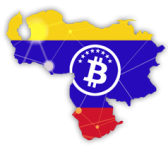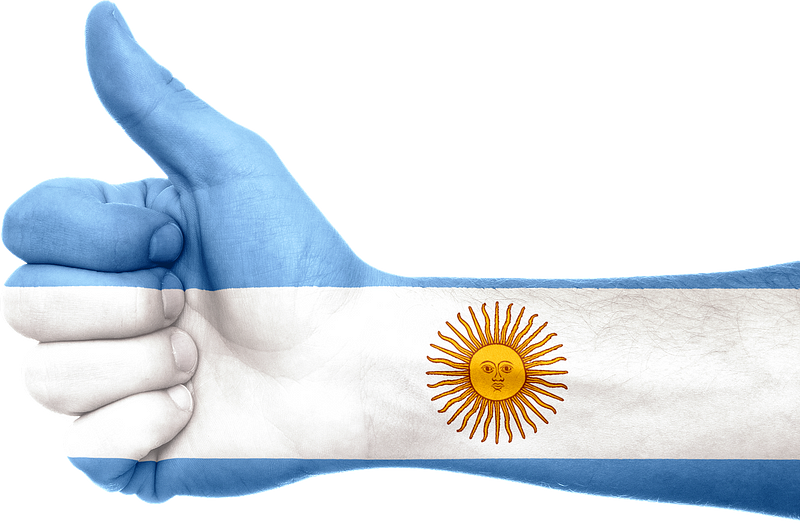
Two important objectives of a country’s government — cultural growth and economic stability. In terms of the latter, much of the Caribbean and Latin American countries seem to be struggling. Widespread corruption, rampant inflation, and devaluing of the country’s currency have made these places a haven for criminal activities.
Cryptocurrencies, by virtue of their transparent design, are able to withstand such economic turmoil. In these countries, bitcoins have been welcomed as a positive innovation, uplifting the people and stabilising the economy to a great extent. It’s not just one country — it’s multiple regions that bitcoin is influencing, and saving. Let’s take a closer look.

In Venezuela
Corruption of banks and the government is often cited as the leading cause of economic woes, specifically relating to the centralized control over currencies.
The regional fiat currency, Venezuela’s Bolivar, experienced drastic inflation at an unpredictable rate, resulting in widespread poverty throughout the nation. The only way to secure their earnings was to convert their money into USD, and the high demand for American dollars created lapses in supply.
In countries with totally centralized economies that revolve around commodities such as oil, Bitcoin’s decentralized technology has helped create a free, better market. They are transparent in nature, with easy access to the blockchain. The decentralized network has ensured a process free of corruption.
People are involving bitcoin in all forms of trade, from buying lunch to doing large scale business transactions. Bitcoin being the messiah here, is helping the economy of Venezuela to swiftly revive after a rather harsh demonetisation process.

In Argentina
The Argentine market is a highly unstable market, plagued by a long history of macroeconomic policy mismanagement, a highly fluctuating currency, depleting foreign reserves and skyrocketing inflation. But with its leap into the digital age, the South American nation has become a fertile ground for virtual currencies like bitcoin — thereby illustrating how bitcoin is providing a reliable alternative to unstable economies.
There have been a number of harsh government reforms that have led to economic turmoil in Argentina. For example, it is illegal to withdraw Euros or U.S dollars in Argentina. The Argentine government has also levied a 35% tax on foreign credit card transactions.
This has spurred the creation of a well-established black market. At the time of writing, the “blue dollar” stands at 12.8 pesos to the U.S. dollar. In comparison to the official rate, which trades at 8.9 pesos per dollar.
To help people free themselves from all these wealth-draining government policies are Bitcoin startups, which are enabling people to carry out transactions for a nominal fee of 2–4%. Bitcoins are also allowing people to convert their money into a more stable currency such as USD or Euros without any hassle.
Argentina’s bitcoin landscape has steadily evolved from a few dozen companies in 2012 to thousands of them in 2015. In 2014, there were over 8,000 convenience stores selling bitcoins in the country. Even retail outlets are increasingly accepting bitcoins.
The tourism industry, in particular, has also become a key market for trade using bitcoins, as foreigners try to eschew Argentina’s official currency rate.
With so much contribution to the Argentine market, it is safe to assume that bitcoins have truly saved Argentina’s economy and is driving it to the upfront.

In Uganda
$40 sent via MoneyGram costs $10 to send — and takes its sweet time to get to Africa, this is a typical story for the people of Uganda.
Annually, Ugandan migrants send home about $500 million in remittances and are charged 10–20% of the value as transfer fees. Banks in Uganda exploit the poor with exorbitant fees — a deposit of $100 in a bank vanishes if left untouched for 5 months. This is why Bitcoin fits well into the country’s lifestyle and is being welcomed as a young currency which offers low transaction fees and provides a fast means of money transfer.
The state of banking is such that a cell phone in Uganda for a year is cheaper than yearly banking fees. Bitcoin has proved more reliable than the country’s banks for day-to-day transactions. Bitcoins are being adopted by more and more people and not just for money transfers but for most day-to-day transactions such as buying meals and mobile recharges as well.
The story is the same for not just these three countries, but for a majority of them in the African sub-continent and Latin America. Directly or indirectly, bitcoins have played a huge part in moving the distressed economies of these countries. At many of these places, Bitcoins are being preferred over banks as they are free from exploitation by the government. While the central governments remain skeptical about digital currencies, the people have adopted to them to a large extent, owing to the benefits of the medium such as transparency.

Also Read:
https://blog.unocoin.com/bitcoin-over-100-billion-in-market-cap-what-the-future-holds-4ba4f7b6e6f6




![Fundamental Analysis in Crypto [Updated Guide] A Comprehensive Guide to Asset Valuation.png](https://blog.unocoin.com/wp-content/uploads/2024/11/A-Comprehensive-Guide-to-Asset-Valuation-218x150.png)